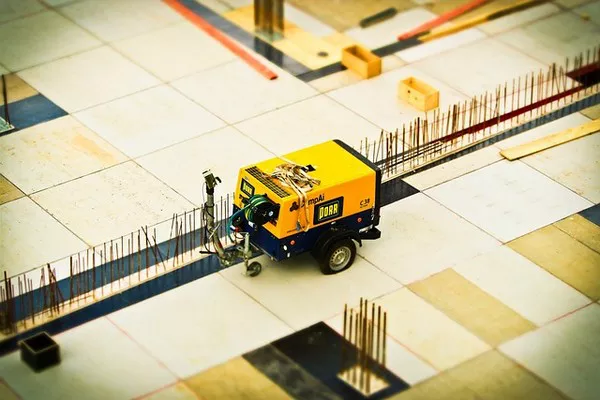The world of industrial equipment has continuously evolved to meet the growing demands of various sectors, and one critical component in this evolution is the air compressor. These devices play a vital role in numerous applications, from manufacturing and construction to automotive repair and aerospace engineering. As industries become more sophisticated, the need for higher pressure air compressors has emerged. In this article, we delve into the realm of high-pressure air compressors, exploring what they are, their applications, and the pursuit of the highest PSI air compressor.
Understanding Air Compressors
Air compressors are mechanical devices designed to convert power, typically from an electric motor or engine, into kinetic energy stored in pressurized air. This compressed air can then be used for a wide array of tasks, such as powering pneumatic tools, inflating tires, or even supporting essential processes in industries like oil refining and petrochemicals.
The performance of an air compressor is often measured by its pressure capacity, which is quantified in pounds per square inch (PSI) or bar. PSI is the more commonly used unit, especially in regions where imperial units are prevalent.
Applications of High-Pressure Air Compressors
High-pressure air compressors find their significance in a multitude of industries where precision, power, and safety are paramount. Some key sectors where high PSI air compressors are indispensable include:
Manufacturing: In industries such as electronics, where intricate components are assembled with precision, high-pressure air is used to clean machinery and parts, ensuring a sterile and contaminant-free environment.
Aerospace: Air compressors with high PSI capabilities are essential in the aerospace sector for tasks like powering pneumatic systems in aircraft landing gear and hydraulics, as well as testing and pressurizing space equipment.
Automotive: High-pressure air is used in automotive manufacturing for tasks like painting vehicles using air-powered spray guns, as well as operating pneumatic tools in repair shops.
Oil and Gas: In the oil and gas industry, high PSI air compressors are crucial for drilling, pipeline maintenance, and various other operations that require pressurized air to power tools and equipment.
Research and Development: High-pressure air compressors are utilized in laboratories and research facilities for tasks such as conducting experiments, simulating extreme conditions, and testing the integrity of materials under high pressure.
The Pursuit of the Highest PSI Air Compressor
The demand for ever-higher levels of pressure has driven engineers and manufacturers to develop air compressors with increasingly higher PSI ratings. Achieving these higher pressures, however, is not without its challenges.
1. Material Strength and Durability:
As pressure levels increase, the materials used to construct air compressors must be able to withstand these extreme forces without deformation or failure. Engineers must meticulously select materials and employ advanced manufacturing techniques to ensure the compressor’s durability and longevity.
2. Precision Engineering:
High-pressure air compressors require meticulous design and engineering to minimize internal leakage, vibrations, and other inefficiencies that can result in energy wastage or diminished performance.
3. Cooling and Lubrication:
As air is compressed, it generates heat that can potentially damage the compressor’s internal components. Effective cooling and lubrication systems are essential to maintain optimal performance and prevent overheating.
Safety Considerations:
Operating air compressors at extremely high pressures carries inherent risks. Ensuring the safety of operators and surrounding personnel requires incorporating robust safety mechanisms and implementing strict operating protocols.
Current State of the Art
As of the most recent data, the highest PSI air compressors available on the market can reach pressure levels of around 6000 to 7000 PSI. These compressors are predominantly used in specialized industries like underwater welding, where high pressure is required to counteract the water’s depth and pressure.
These high-pressure air compressors are usually reciprocating or rotary screw compressors, designed with specialized components to handle the increased stress. They often feature advanced cooling and lubrication systems to manage the heat generated during compression.
Future Directions and Possibilities
The pursuit of even higher PSI air compressors continues to be an area of active research and development. There are several potential avenues for advancing high-pressure air compressor technology:
Advanced Materials: The development of novel materials with exceptional strength and durability could enable the construction of air compressors capable of withstanding pressures beyond the current limits.
Compressor Efficiency: Enhancing the efficiency of high-pressure compressors through improved designs and innovative engineering approaches could help reduce energy consumption and operational costs.
Integrated Safety Systems: Implementing intelligent safety systems that can detect anomalies and potential failures in real-time could further enhance the safety of operating high-pressure air compressors.
Compactness and Portability: Research into miniaturizing high-pressure air compressors while maintaining their performance could open up new applications and industries that demand compact, portable solutions.
Conclusion
The evolution of air compressor technology reflects the advancement of industrial capabilities across various sectors. High-pressure air compressors, with their ability to deliver pressurized air at extreme levels, have revolutionized industries where precision, power, and safety are paramount. While the current state of the art reaches pressures of around 6000 to 7000 PSI, the pursuit of higher PSI air compressors remains a driving force for innovation. As technology and engineering continue to progress, the possibilities for achieving even higher pressure levels are both exciting and promising, unlocking new realms of potential in industries that rely on these indispensable devices.

